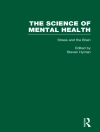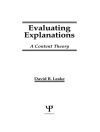This practical guide is a must read for students interested in developing the attitudes, knowledge, skills, and values that foster positive relationships with people from diverse cultures both within and outside of the workplace. It contains real-life examples from students drawn from the authors’ work across different countries.
In an age of growing diversity and increasing global mobility, living and working with people from different cultural backgrounds is becoming the norm. To address this complex topic, the authors invite students to consider key questions such as: How do our cultural backgrounds influence our behavior towards others? What is intercultural competence and how can it help students to get along in work and life? How can institutions help students to develop intercultural competence? What does it have to do with topics like prejudice, discrimination, and racism? How can intercultural competence facilitate social change and help students to succeed in their careers?
Written for students in any country and studying in any discipline, this book includes practical activities designed to help students to develop intercultural competence throughout their time at college or university. It is useful for students as an autonomous learning source, or as a resource for taught courses.
Drawing on a comprehensive and rigorous knowledge of the field, the authors have written a thought-provoking analysis and a practical guide to understanding and enacting Intercultural Competence. I learnt from and admire their ambitious vision of the significance of intercultural competence for society and for the lives and careers of their readers.
— Michael Byram, author of Teaching and Assessing Intercultural Communicative Competence, Durham University, UK
This is a wonderfully readable book, which carefully and clearly explains the concept of intercultural competence, exploring its implications for addressing many of the most crucial issues facing the world today. Based on impeccable scholarship, and containing a wealth of practical activities, this book is highly recommended for students and interested laypeople alike.
— Martyn Barrett, University of Surrey, UK
An exceptionally user-friendly and theory-informed guidebook that would not only benefit university students but anyone with an interest in intercultural communication. The book is second to none in terms of clarity of presentation and coverage of concepts, models and practical ideas relevant to intercultural competence for the contemporary society.
—Anwei Feng, University of Nottingham Ningbo, China
An essential handbook and excellent addition to conventional textbooks. Nuanced and down-to-earth
explanations about intercultural communication which are accessible to everyone. Insightful explanations for educators and students alike. Easy to use self-study guide with thought-provoking exercises. This book has been long needed and has come at just the right time.
–Ivett Guntersdorfer, Founder and Director of the Intercultural Communication Certificate Program, Ludwig-Maximilians-Universität München, Germany
Spis treści
1. Introduction.- 2. Theoretical background.- 3. University context.- 4. Self-development.- 5. Critical incidents at university.- 6. Societal / organisational cultural competence.- 7. ICC and your career.- 8. Lifelong development.- References.- Further resources and reading.- Glossary of key terms (index).
O autorze
Caprice Lantz-Deaton, Ph D is former lecturer in Psychology and Equality, Diversity and Inclusion at the University of Bradford, UK. She specializes in the development of intercultural competence in university students in relation to equality, diversity, and inclusion and the cultivation of skills for employability and intercultural citizenship.
Irina Golubeva, Ph D is Associate Professor of Intercultural Communication at the University of Maryland Baltimore County, USA, and co-Director of the Intercultural Leadership Certificate Program. She specializes in the development of multilingual awareness and intercultural competence, internationalisation of higher education, and intercultural citizenship education.












